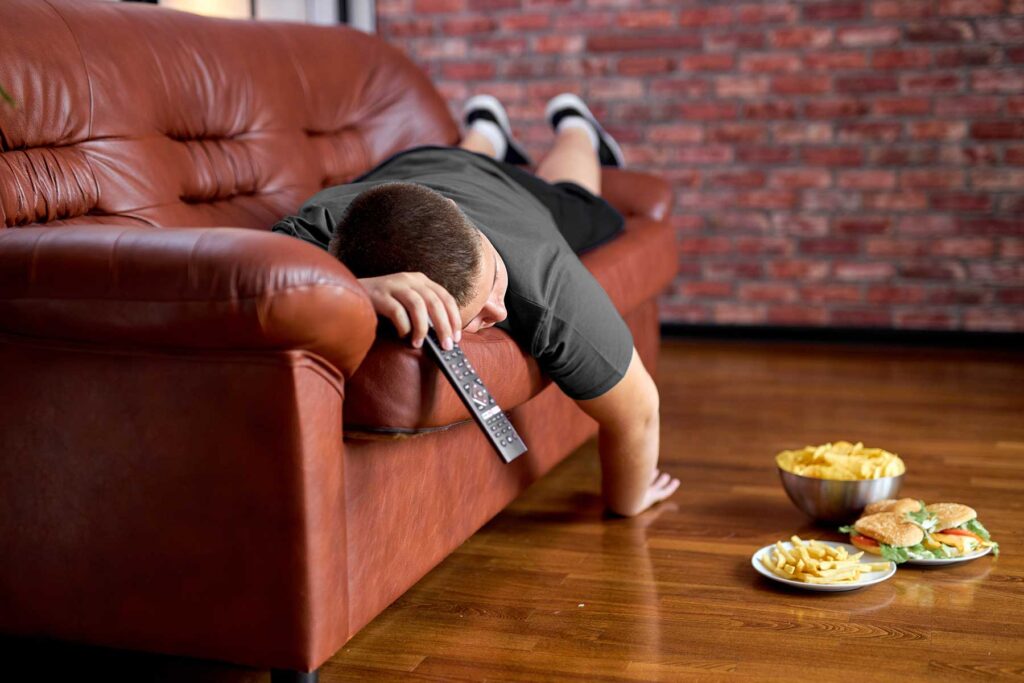Binge eating is an eating disorder that involves compulsive eating. Without professional support, a teen with a binge eating disorder might struggle to stop eating. Disordered eating treatment is necessary to help a teen stop binge eating before it leads to a full-blown eating disorder. The causes of binge eating aren’t well understood. Contributing factors are a combination of genetics, mental health concerns, and long-term dieting. Treating binge eating can help a teen build the foundation for recovery, but parents shouldn’t underestimate the role of parental support. Knowing how to support your teen is one of the best ways to help them stop binge eating. Contact Foothills at Red Oak Recovery at 866.300.5275 to discuss treatment options for disordered eating. Our teen eating disorder treatment can help.
What Is Binge Eating Disorder?
Binge eating disorder happens when an adult or teenager consumes excessive amounts of food. Your teen feels compelled to eat and may even feel unable to stop eating. Often, teens resort to secrecy, hiding their eating habits from concerned parents. Compulsive eating can result in obesity and weight gain, but not always. A teen can struggle with a binge eating disorder even if they aren’t overweight.
How to Stop Binge Eating Disorder in Your Teen
Teens can heal from binge eating disorders, but it takes work. Healing requires the support of professionals and parents. Parents have the best of intentions for their children, but most parents don’t have the professional training and education to know how to stop binge eating disorders. By working with professionals, you can make a plan for how to support your child to have a healthier relationship with food.
Ask for Help
It’s essential to recognize that binge eating is a mental health concern. Internal factors cause your teen to binge eat, and often they’re not capable of stopping until they’ve received sufficient treatment. It takes more than self-control to overcome binge eating. No parent should feel that the task of stopping a teen from binge eating lies on their shoulders alone. If you find yourself searching the internet for things like “binge eating disorder how to stop,” it’s time to ask for help.
Binge eating may require evidence-based therapies conducted by medical professionals. The first step to helping your teen is to enroll them in a binge eating treatment program. Without adequate treatment, your teen’s mental, emotional, and physical health will continue to worsen.
Get Involved in Treatment
Healing a binge eating disorder doesn’t magically happen throughout a treatment program. It’s a long-term process. Treatment is effective because it’s a chance to hit pause on current thoughts and behaviors and intentionally cultivate new, healthier ones. Healthy parental involvement is the best way for you to help your teen get the most benefit. Attend family therapy sessions and work to get the most out of them. Do your research to understand how binge eating disorder works.
Support Their Recovery
Parents who don’t understand binge eating disorders may unintentionally create an unhealthy environment that makes their teens feel worse.
Parents can learn how to stop binge eating disorders and take the following steps to support a teen’s recovery:
- Keep nutritious food at home
- Cook healthy, balanced meals
- Avoid dieting and diet culture attitudes
- Encourage and participate in exercise
Parents can model and support self-care practices like regular exercise. Cooking as a family or buying a family gym membership are ways for the family unit to grow into physical health together. Parents should speak with their teen’s therapist to discuss specific approaches that would best support their teen.
Benefits of Teen Binge Eating Disorder Treatment
Teen binge eating disorder can be a difficult and dangerous condition to manage. Learning proper coping skills, nutrition, and lifestyle changes through teen binge eating disorder treatment can help teens who are struggling with this condition. Here are some of the benefits of seeking teen binge eating disorder treatment:
- Improved health – Binge eating can have serious health implications, and seeking professional treatment can help teens to better manage their health. Treatment includes nutritional counseling, which can help teens to learn how to properly nourish their bodies and make healthier food choices.
- Reduced feelings of guilt or embarrassment – Binge eating disorder can be an embarrassing problem for teens to talk about, but with the help of a professional, it can become easier to discuss. In treatment, teens can learn that binge eating is a medical condition and not something to be ashamed of.
- Help with disordered thinking – For those suffering from binge eating disorder, treatment can provide an opportunity to gain insight into why they engage in these destructive behaviors. Through cognitive behavioral therapy, teens can learn to challenge the negative thoughts and beliefs that may contribute to their binge eating episodes.
- Improved self-esteem – Teen binge eating disorder can take a toll on a teen’s self-esteem. With treatment, teens can learn to accept themselves and their bodies, building confidence and a greater sense of self-worth.
Each person’s experience with teen binge eating disorder is different, so the best treatment plan will be tailored to meet the individual needs of the client.
Binge Eating Treatment at Foothills at Red Oak Recovery
Foothills at Red Oak Recovery offers binge eating disorder treatment programs for teenage boys. Teens learn how to have a healthy relationship with food, supported by programs that address nutrition and mental health. Therapy for binge eating disorders helps a teen understand why they binge eat and how to stop. Co-occurring disorder diagnosis will identify if an underlying condition like depression contributes to your teen’s binge eating. Contact Foothills at Red Oak Recovery at 866.300.5275 for more information on treating binge eating disorders in teenage boys.





